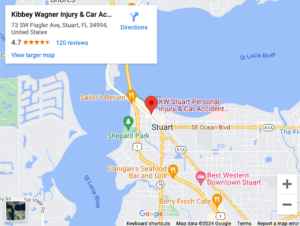
An insurance company holds a contractual obligation to pay legitimate claims against the policies it sells to consumers. The problem is that insurance companies are profit-seeking entities, and they don’t profit by paying claims.
As such, you can expect an insurance adjuster to resist paying your claim. Nevertheless, if they cross a certain line and start dealing dishonestly with you, you can file a bad faith lawsuit against them, seeking monetary damages.
When an Insurance Company Can Deny Your Claim

Not all insurance company denials are wrongful.
Under the following circumstances, you probably cannot file a bad faith claim:
- You failed to file your claim before the statute of limitations deadline expired.
- You fell behind on paying your insurance premiums. This will justify the insurance company canceling your policy. If you file a claim after the insurance company justifiably cancels your policy, the company has the right to deny your claim.
- You didn’t provide the insurance company with enough information and documentation to process your claim. That doesn’t mean, however, that the insurance company can burden you with endless requests.
- The insurance policy does not cover your accident or the risk that resulted in the accident.
- There is a legitimate dispute over the defendant’s liability for your injury and damages. For example, you may have been partly at fault,
Many other reasons might justify an insurance company’s refusal to pay your claim.
Examples of Insurance Company Bad Faith Practices
The Florida Unfair Trade Practices Act requires an insurance company to deal with you in honesty and good faith, regardless of whether you purchased the policy or are a third-party claimant.
The following behavior frequently triggers bad-faith claims against an insurance company:
- Failing to properly review your claim – an immediate denial without a clear reason is a dead giveaway
- Denying your claim for no reason at all
- Intentionally undervaluing your claim – You can expect a lowball offer to start off with. Your response should be to counteroffer for a more reasonable sum. If the insurance company sticks to the lowball offer and won’t budge, you might have a bad faith claim.
- Gerrymandering the scope of the policy’s coverage – One way to do this is to use legalese to mislead you about the insurance coverage or policy terms. This is particularly likely if you don’t have a lawyer.
- Refusing to communicate with you – Some delay is inevitable for a busy insurance company. Beyond a certain point, delays constitute bad-faith stonewalling.
- Discriminating against you because of your race, ethnic origin, religion, etc. – This is a federal civil rights matter, not just a bad faith claim.
- Arbitrarily lowering the value of your claim
- Endless requests for additional documentation of information – Such requests are particularly suspicious if the statute of limitations deadline is looming.
- Misleading you about the law so that you will not realize you have a valid claim – The insurance company probably won’t dare try this approach if you have a lawyer.
- Pressuring you not to get a lawyer
- Various delaying tactics – Your insurance adjuster is “on vacation,” for example, and there is no one else who can talk to you.
- Lying or misleading you to get you to accept an inadequate settlement offer – An insurance company might issue you a “take it or leave it” offer by an arbitrary deadline, for example. If they mislead you into believing that their deadline, instead of the statute of limitations, is the real deadline, you might have a bad faith claim.
- Canceling the insurance policy after you file the claim and then using their cancellation as the basis for a retroactive denial
This is just the tip of the iceberg. Insurance companies have hundreds of other tricks up their sleeve.
Compensation Available in a Florida Bad Faith Claim
If an insurance company fails to pay a legitimate claim and you win a bad-faith lawsuit against it, you are entitled to two recoveries. The first recovery is the amount of your original claim. The second recovery is for your losses arising from the insurance company’s unjust refusal to pay your claim.
These damages could include the following items:
- Any impact on your health caused by the insurance company’s failure to pay. For example, your healthcare provider might have denied you medical treatment based on your inability to pay.
- Compensation for the time you spent pursuing your claim.
- Any expenses that arose from your attempt to process your claim.
- Your emotional distress and suffering.
Keep in mind that in extreme cases, the insurance company might face criminal liability for its bad faith. Although criminal liability might not directly provide you with any extra money, under certain circumstances, you can use the possibility of criminal liability as bargaining leverage at the settlement table.
Insurance Companies Are Difficult To Deal With – Hire a Stuart Personal Injury Lawyer for Help
If you seek to file a bad faith claim against an insurance company, you can be sure that they will seek the assistance of a high-priced lawyer to fight back against your claim. Don’t try to handle your claim alone. Seek the help of an experienced Stuart personal injury attorney who has experience handling bad-faith claims against insurance companies. Contact or call Kibbey Wagner Injury & Car Accident Lawyers at (772) 444-7000 if you need legal assistance.




